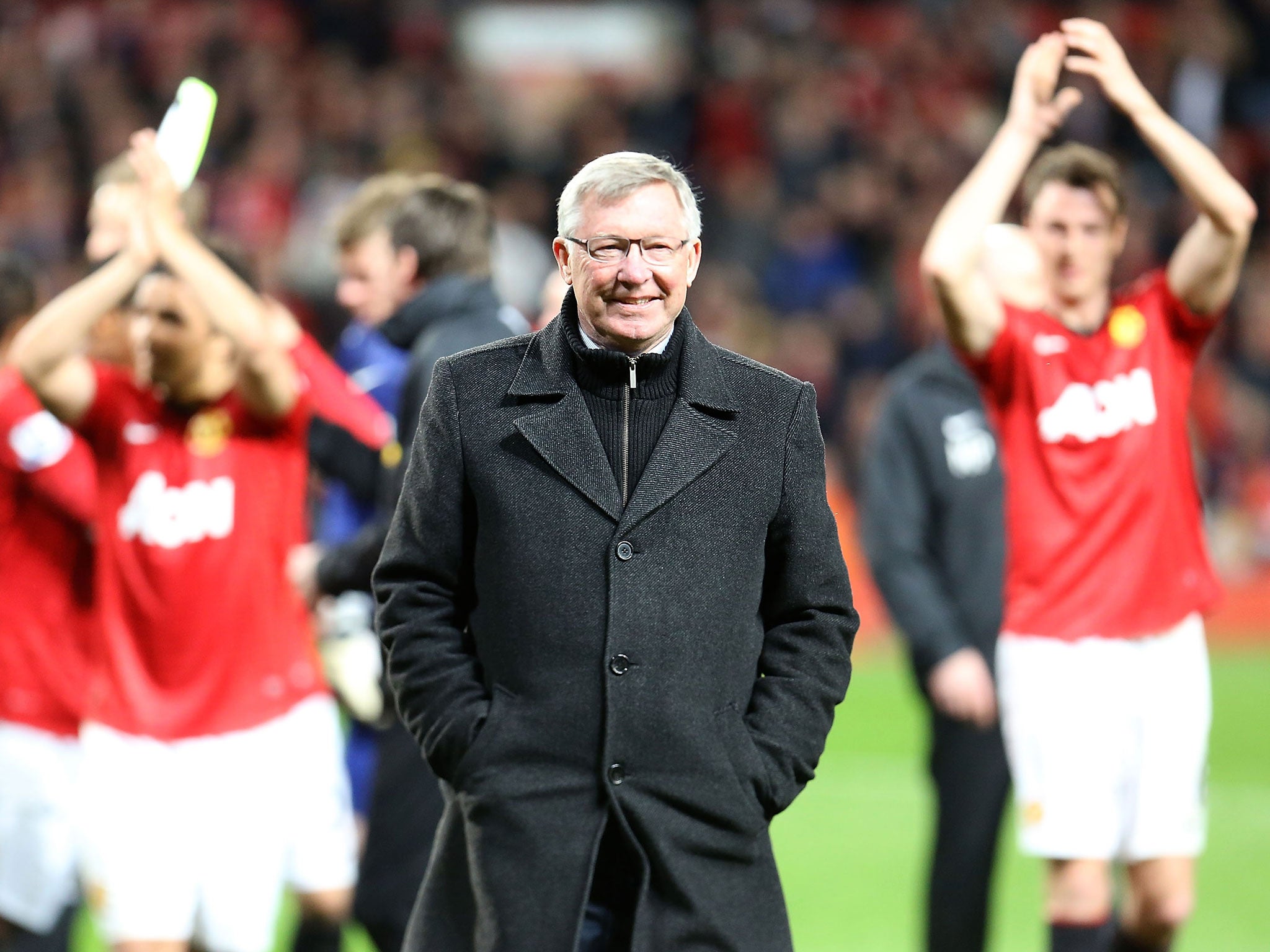The deification has started already - Sir Alex Ferguson is the patron saint of football's moneymen
It was the moneymen behind Sir Alex who constructed Man U's global brand. But they couldn't have done it without his successes


Your support helps us to tell the story
From reproductive rights to climate change to Big Tech, The Independent is on the ground when the story is developing. Whether it's investigating the financials of Elon Musk's pro-Trump PAC or producing our latest documentary, 'The A Word', which shines a light on the American women fighting for reproductive rights, we know how important it is to parse out the facts from the messaging.
At such a critical moment in US history, we need reporters on the ground. Your donation allows us to keep sending journalists to speak to both sides of the story.
The Independent is trusted by Americans across the entire political spectrum. And unlike many other quality news outlets, we choose not to lock Americans out of our reporting and analysis with paywalls. We believe quality journalism should be available to everyone, paid for by those who can afford it.
Your support makes all the difference.He’s vying with the Queen’s Speech and day two of the half-horrific-half-heartwarming story of the escape of the imprisoned women in Ohio for lead item on just about every news service.
For many, there’s no competition. Ferguson is the only story. He didn’t just build a team, or a club (as he said). He was responsible for the creation of a mega-brand on the back of the success of his side, which has attracted a global fan base that has invested not only its love and loyalty but also cash. And lots of it.
It was the moneymen behind Sir Alex who constructed that brand. But would they have been able to pull it off without Ferguson? Doubtful. Manchester United’s legion of global fans, not to mention the legion of Essex reds who shun their local and even London sides to pile on to coaches to worship at the shrine of their sainted Sir Alex, are buying into success. The success of Manchester United the business is predicated on the club’s success on the pitch.
Buying into the brand is expensive, but it doesn’t matter. Traditionalists may bemoan the dominance of finance in football, but it’s the name of the game today.
The Man U legion will pay through the nose, not just for tickets (the majority of Man U fans have never been within 100 miles of Old Trafford) but in pay TV subscriptions, replica kits, and any number of other souvenirs. Just so when they talk about Man U they can say “we”.
Prior to Ferguson’s arrival, Manchester United had borne the status of sleeping giant. The club still had a huge support and impressive resources. But the team always under achieved.
It took a leap of faith for Man U’s then board to stick with Sir Alex during some difficult years and wait for that to change. They were right to do so. Sir Alex’s first title, the club’s first for 26 years, was also the first Premiership title, and coincided with changes to the top flight and to the top competition in Europe (the birth of the Champions League) that cemented the dominance of the big clubs.
Only oligarchs, whether domestic (Jack Walker’s steel millions) Russian (Roman Abramovich) or from the Gulf (Sheikh Mansour) could hope to wrest the title from his grasp, with the notable exception of Arsene Wenger’s Arsenal (and the fans calling for change might care to remember that).
Abramovich and the Sheikh are still around, and thanks to their largesse Manchester United no longer enjoys the financial dominance it had during Sir Alex’s era. It won’t get it back anytime soon. It is a quoted company again with shareholders, and a board which has to produce profits.
In the excellent Why England Lose At Football Simon Kuper and Stefan Szymanski argue that in reality, and judged on his good-but-not-great record in European competition, Fergie only achieved what he should have achieved given the club’s advantage in resources.
That’s not quite such an easy argument to make today, given the firepower of his rivals. But will brand Man U survive a lean spell under a man without Ferguson’s unique approach and power? That’s the billion dollar question now, isn’t it.
Join our commenting forum
Join thought-provoking conversations, follow other Independent readers and see their replies
Comments